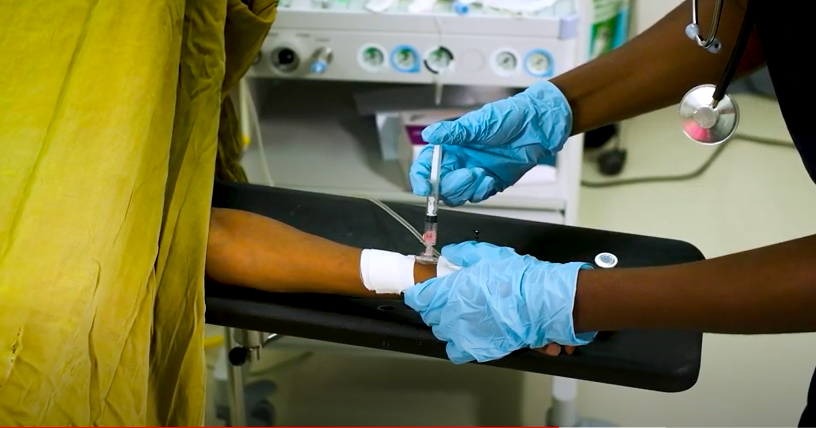
Unraveling the Global Antibiotic Dilemma in Surgical Practices
Examining Infection Impact and Hospital Stay Consequences
A Lifebox study – published by the British Journal of Surgery (BJS) – investigated the widespread adoption of postoperative antibiotic prophylaxis in low- and middle-income countries (LMICs).
Although not recommended by the WHO, this practice is widespread in healthcare systems grappling with limited resources, fueled by the belief it may prevent surgical site infections and that international recommendations do not take into consideration the high rates of surgical site infection in low-resource settings.
The appropriate use of antibiotics is part of Lifebox’s surgical infection reduction program – Clean Cut. Lifebox is piloting an antibiotic stewardship program as part of its work to reduce rates of surgical site infection in low-resource settings.
The multi-country study – ‘An observational cohort study on the effects of extended postoperative antibiotic prophylaxis on surgical-site infections in low- and middle-income countries‘ – examined data from 19 hospitals and 8,714 patients. The study uncovered a surprising revelation: 92.9% of patients received antibiotics for prophylaxis after surgery, and a notable 27.7% received antibiotics for a duration exceeding 24 hours. Contrary to the common teachings in LMICs, the research revealed that prolonged postoperative antibiotic use did not result in a reduction in surgical-site infections. Instead, patients prescribed extended antibiotic regimens experienced a significant increase of 1.4 days in hospital stays, with no discernible impact on infection rates.
“Long courses of antibiotics after surgery to prevent surgical site infections are common in settings where operating room sterility is challenging, although it is not recommended by the WHO. This study provides more evidence that even when sterility is challenging, this practice does not prevent surgical site infections.” – Dr. Maia Nofal, Lifebox Fellow
The study findings challenge conventional wisdom taught in LMICs and emphasize the necessity for a reassessment of antibiotic practices in healthcare systems with limited resources. Amid the looming threat of antimicrobial resistance, the study advocates for immediate surgical initiatives to implement antimicrobial stewardship programs in low- and middle-income countries. It serves as a call to action, urging the global medical community to enhance postoperative antibiotic protocols to align with both patient well-being and the broader efforts against antimicrobial resistance.
An observational cohort study on the effects of extended postoperative antibiotic prophylaxis on surgical-site infections in low- and middle-income countries
➡️ https://t.co/H14xin1y8QThis cohort study evaluated whether postoperative antibiotic prophylaxis decreased the risk… pic.twitter.com/4PpJKS9rlC
— BJS (@BJSurgery) January 14, 2024
AUTHORS: Maia R. Nofal , Alex Y. Zhuang , Natnael Gebeyehu, Nichole Starr , Sara Taye Haile, Habtamu Woldeamanuel, Assefa Tesfaye, Senait Bitew Alemu, Abebe Bekele, Tihitena Negussie Mammo, Thomas G. Weiser and Lifebox Clean Cut Collaborative.

